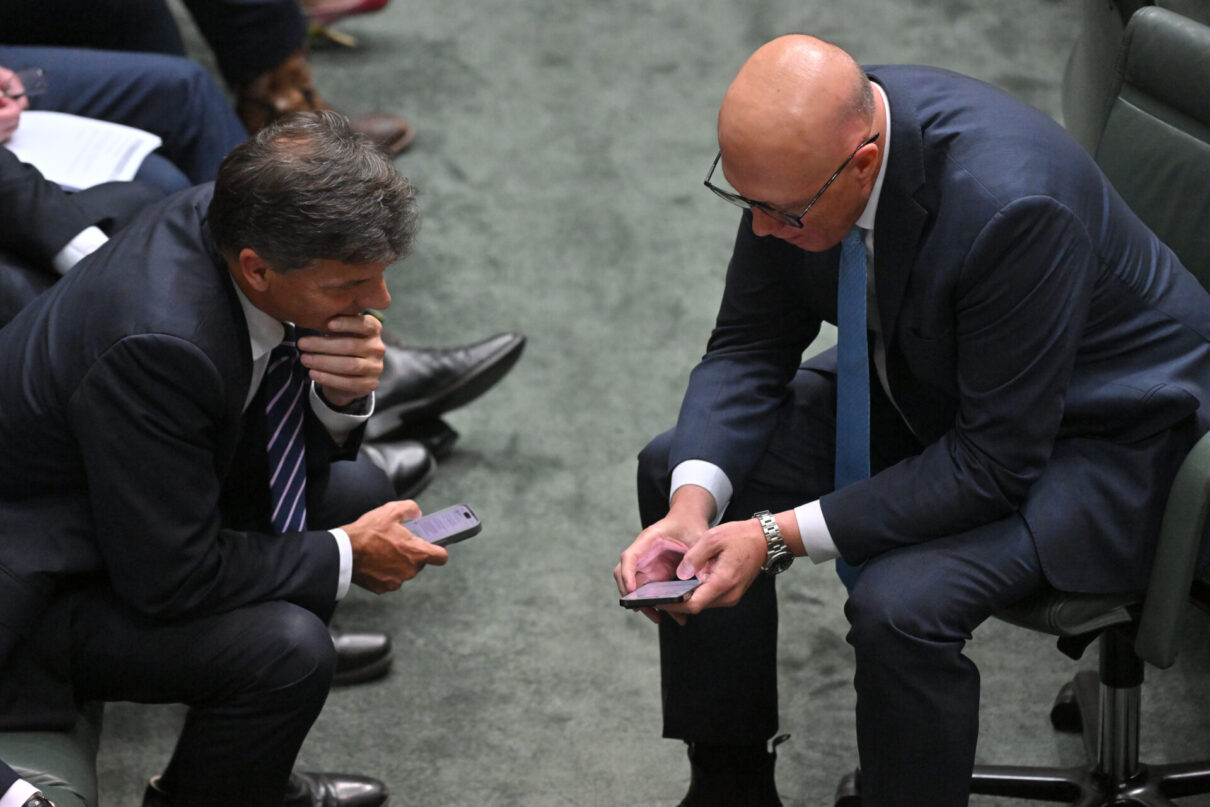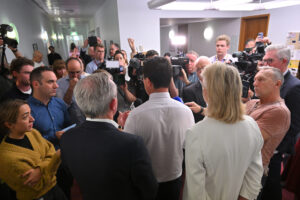The Liberal Party defies its own history on tax

For decades, the Liberal Party has prided itself on being the “party of lower taxes”.
In this election campaign, opposition leader Peter Dutton has set out to defy the weight of his party’s recent history.
Dutton began the year by announcing plans to make the instant asset write-off scheme permanent and to introduce a $20,000 tax deduction for small business meal and entertainment expenses. In his budget reply speech on Thursday night, Dutton promised to temporarily halve the petrol excise, a move which he claimed would save motorists $14 per week.
That’s the extent of the Liberal Party’s tax agenda so far. Shadow ministers have told the media there are no discussions or plans for personal tax relief. When the government unveiled its budget-night proposal to cut the lowest tax rate (from 16 per cent to 14 per cent by mid-2027), Dutton dismissed the measure as a “cruel hoax” and promised to repeal the legislation if elected.
The opposition’s pledge to oppose that measure is truly historic.
Since the Menzies era, there have only been two out of 22 federal elections where the Liberal Party did not offer either personal income tax cuts, family tax relief or company tax cuts.
In elections where the Liberal Party did not make income tax cuts a centrepiece of its policy offering, it still offered proposals such as income tax indexation or half-indexation (particularly under Malcolm Fraser), income tax-splitting (under Andrew Peacock), child tax rebates (under Peacock and John Howard) or changes to the tax-free threshold (particularly under the Howard government) as a form of personal tax relief.
Even when they went to elections promising new consumption taxes, as they did in 1993 and 1998, the Coalition offered income tax cuts as an olive branch to voters.
Exceptions to the tax-cutting routine have usually been produced by exceptional circumstances.
In 1966, Harold Holt and Arthur Calwell were busy arguing about Australian conscripts who were fighting in Vietnam. According to some estimates, Australia’s war effort cost $218.4 million over the decade to March 1972, and tax cuts are harder to produce when military spending is high.
The other main exception occurred in 1972, when Prime Minister William McMahon boasted of the government’s recent successive tax-cutting budgets. He promised “within the limits of economic responsibility” to “restructure the income tax scale periodically” to reduce taxes.
The same rhetoric has been used by Peter Dutton to justify his lack of a plan for family tax relief.
At every other election, there has been some form of promise to reduce the total tax burden on “families”, “families with children”, “hard-working Australians”, “companies” and “small businesses”.
In 1983, in the face of recession and on the back of major tax cuts during the previous parliament, the Fraser Government chose not to offer income tax cuts in its policy manifesto. Instead, it proposed company tax cuts.
In 2010 the Coalition chose not to offer income tax cuts but promised a 1.5 per cent cut in company tax. Three years later, the Liberal Party’s Real Solutions pamphlet promised to “fund personal income tax cuts for individuals and families”, although it didn’t explain how.
The current opposition’s policy offering includes no proposal for company tax cuts thus far. It may be that shadow ministers are still scarred by their failure to pass company tax cuts when last in government.
The Liberal Party has always identified itself as the party of lower taxes. But as the Coalition approaches the 2025 federal election, its reluctance to offer personal tax relief or company tax cuts marks a historic shift away from one of its core values.
Between the Lines Newsletter
The biggest stories and the best analysis from the team at the Australia Institute, delivered to your inbox every fortnight.
You might also like
Gender parity closer after federal election but “sufficiently assertive” Liberal women are still outnumbered two to one
Now that the dust has settled on the 2025 federal election, what does it mean for the representation of women in Australian parliaments? In short, there has been a significant improvement at the national level. When we last wrote on this topic, the Australian Senate was majority female but only 40% of House of Representatives
Failing the test: Australian universities in crisis
Great countries have great institutions, but Australian universities are a mess.
Hearing voices: why the Nats should be watching their backs
The community independent movement did not begin in Sydney or Melbourne, but in the bush.



